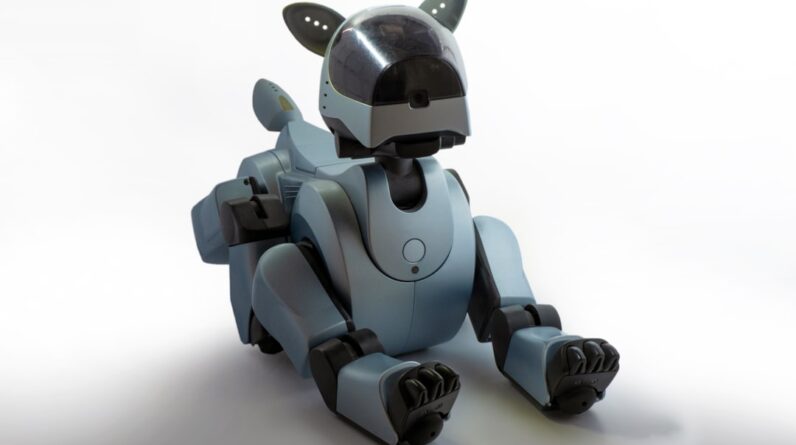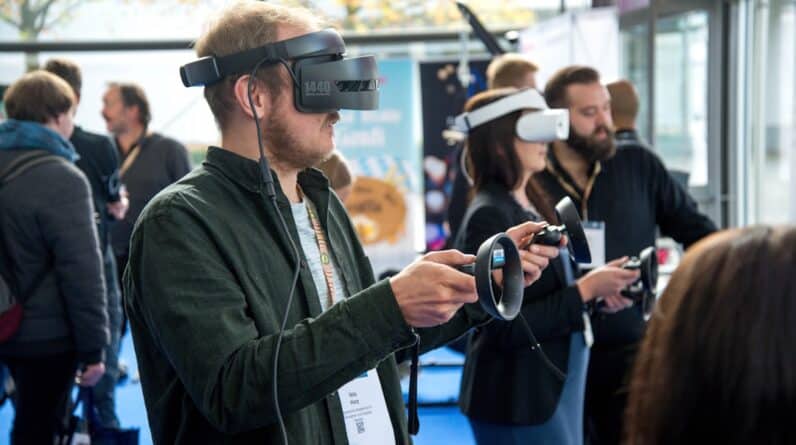As you navigate the ever-evolving landscape of Human Resources (HR), you may find yourself increasingly aware of the transformative role that artificial intelligence (AI) plays in this field. AI is not merely a buzzword; it represents a significant shift in how organizations manage their most valuable asset: their people. By automating routine tasks, enhancing decision-making processes, and providing data-driven insights, AI is reshaping HR practices in ways that were once unimaginable.
This technology is not just about efficiency; it’s about creating a more engaging and effective workplace for everyone involved. Incorporating AI into HR functions can lead to a more streamlined approach to managing talent. From recruitment to employee development, AI tools are designed to assist HR professionals in making informed decisions that align with organizational goals.
As you delve deeper into the various applications of AI in HR, you will discover how this technology can enhance your ability to attract, retain, and develop talent while fostering a culture of inclusivity and innovation.
Key Takeaways
- AI is revolutionizing the human resources industry by streamlining processes and improving decision-making.
- AI is transforming recruitment and hiring processes by automating repetitive tasks, analyzing candidate data, and improving candidate experience.
- AI is playing a crucial role in employee training and development by personalizing learning experiences and providing real-time feedback.
- AI is being used in performance management and feedback to track employee progress, identify areas for improvement, and provide more accurate evaluations.
- AI has the potential to improve workplace diversity and inclusion by reducing bias in hiring and promoting fair treatment of employees.
The Impact of AI on Recruitment and Hiring Processes
When it comes to recruitment and hiring, AI has revolutionized the way organizations identify and engage potential candidates. You may have noticed that traditional methods of sifting through resumes can be time-consuming and often lead to missed opportunities. AI-powered tools can analyze vast amounts of data in seconds, identifying the best candidates based on specific criteria such as skills, experience, and cultural fit.
This not only speeds up the hiring process but also enhances the quality of hires by ensuring that the most suitable candidates are prioritized. Moreover, AI can help eliminate biases that often creep into the hiring process. By using algorithms that focus solely on qualifications and experience rather than demographic factors, you can create a more equitable recruitment process.
This shift not only benefits candidates but also enhances your organization’s reputation as an inclusive employer. As you embrace these AI-driven solutions, you will likely find that your hiring processes become more efficient, fair, and aligned with your company’s values.
AI’s Role in Employee Training and Development

Once you have successfully recruited top talent, the next step is to ensure their continuous growth and development within the organization. AI plays a pivotal role in personalizing training programs to meet the unique needs of each employee. By analyzing performance data and learning preferences, AI can recommend tailored training modules that enhance skill development and career progression.
This personalized approach not only increases employee engagement but also ensures that your workforce remains competitive in an ever-changing job market. Additionally, AI can facilitate ongoing learning through adaptive learning platforms that adjust content based on real-time feedback. As you implement these technologies, you will likely notice a shift in how employees perceive training opportunities.
Instead of viewing training as a mandatory task, they will begin to see it as an integral part of their career journey. This cultural shift can lead to higher retention rates and a more motivated workforce eager to contribute to the organization’s success.
The Use of AI in Performance Management and Feedback
Performance management is another area where AI is making significant strides. Traditional performance reviews often rely on subjective assessments that can lead to misunderstandings and dissatisfaction among employees. With AI, you can leverage data analytics to provide objective insights into employee performance.
By tracking key performance indicators (KPIs) and analyzing trends over time, you can offer constructive feedback that is grounded in evidence rather than opinion. Furthermore, AI can facilitate continuous feedback loops between managers and employees. Instead of waiting for annual reviews, real-time feedback mechanisms allow for ongoing conversations about performance and development.
This shift not only fosters a culture of transparency but also empowers employees to take ownership of their growth. As you embrace these AI-driven performance management tools, you will likely find that employee satisfaction increases, leading to higher productivity and overall organizational success.
AI’s Influence on Workplace Diversity and Inclusion
In today’s globalized world, fostering diversity and inclusion within the workplace is more important than ever. You may be aware that diverse teams often outperform their homogeneous counterparts due to a wider range of perspectives and ideas. AI can play a crucial role in promoting diversity by helping organizations identify gaps in representation and develop strategies to address them.
By analyzing workforce demographics and employee feedback, AI can provide insights that inform your diversity initiatives. Moreover, AI-driven recruitment tools can help mitigate unconscious bias by focusing solely on qualifications and skills during the hiring process. This allows you to build a more diverse talent pool that reflects the communities you serve.
As you implement these strategies, you will likely see a positive impact on employee morale and innovation, as diverse teams bring unique viewpoints that drive creativity and problem-solving.
The Ethical Considerations of AI in HR

While the benefits of AI in HR are substantial, it is essential to consider the ethical implications of its use. As you integrate AI technologies into your HR practices, you must remain vigilant about issues such as data privacy, algorithmic bias, and transparency. Ensuring that employee data is handled responsibly is paramount; organizations must comply with regulations such as GDPR while also fostering trust among employees regarding how their information is used.
Additionally, it is crucial to regularly assess the algorithms used in AI systems for potential biases that could inadvertently disadvantage certain groups of employees or candidates. As you navigate these ethical considerations, establishing clear guidelines for the use of AI in HR will be essential for maintaining integrity and accountability within your organization. By prioritizing ethical practices, you can harness the power of AI while safeguarding the interests of your workforce.
The Future of AI in Human Resources
Looking ahead, the future of AI in Human Resources appears promising yet complex. As technology continues to advance, you can expect even more sophisticated tools that enhance HR functions across various domains. For instance, predictive analytics may become commonplace, allowing organizations to anticipate workforce trends and make proactive decisions regarding talent management.
This forward-thinking approach will enable you to stay ahead of industry changes and adapt your strategies accordingly. Moreover, as remote work becomes increasingly prevalent, AI will play a vital role in facilitating virtual collaboration and engagement among distributed teams. Tools that analyze employee interactions and engagement levels will help you create a cohesive company culture regardless of physical location.
As you embrace these innovations, it’s essential to remain adaptable and open-minded about how AI can further enhance your HR practices.
Embracing AI as a Tool for Positive Change in HR
In conclusion, embracing artificial intelligence as a tool for positive change in Human Resources is not just an option; it’s becoming a necessity in today’s competitive landscape. By leveraging AI technologies across recruitment, training, performance management, diversity initiatives, and ethical considerations, you can create a more efficient and inclusive workplace that benefits both employees and the organization as a whole. As you move forward in your HR journey, remember that while AI offers powerful capabilities, it should complement human intuition and empathy rather than replace them.
By striking the right balance between technology and human touch, you can foster an environment where employees feel valued and empowered to thrive. Embracing AI is not merely about keeping up with trends; it’s about positioning your organization for long-term success in an increasingly complex world.
A related article to “A Catalyst for Change: AI in Human Resources” is “Bias in AI: The Challenge of Building Fair and Neutral Systems.” This article explores the ethical implications of artificial intelligence and the importance of creating unbiased systems. To learn more about how bias can impact AI technology, you can read the full article here.
FAQs
What is AI in Human Resources?
AI in Human Resources refers to the use of artificial intelligence technology to streamline and improve HR processes such as recruitment, employee engagement, performance management, and talent development.
How does AI impact Human Resources?
AI can impact Human Resources by automating repetitive tasks, providing data-driven insights for decision-making, improving the candidate and employee experience, and enabling predictive analytics for workforce planning.
What are the benefits of using AI in Human Resources?
Some benefits of using AI in Human Resources include increased efficiency, cost savings, improved accuracy in decision-making, enhanced candidate and employee experience, and the ability to identify and address workforce trends and issues.
What are some examples of AI applications in Human Resources?
Examples of AI applications in Human Resources include AI-powered recruitment tools for candidate sourcing and screening, chatbots for employee self-service and support, predictive analytics for identifying high-potential employees, and sentiment analysis for gauging employee engagement.
What are the potential challenges of implementing AI in Human Resources?
Challenges of implementing AI in Human Resources may include concerns about data privacy and security, the need for upskilling HR professionals to work with AI tools, potential biases in AI algorithms, and the impact on the human touch in HR processes.






